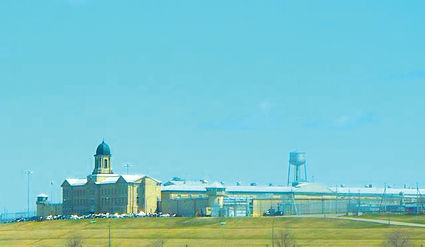CSC rejects recommendation to appoint deputy commissioner for aboriginal corrections
Last updated 5/25/2013 at 10:13am

www.nunatsiaqonline.ca
Manitoba’s Stony Mountain Federal Penitentiary is just one prison in Canada with a large Native population. As indicated in the report, there is an urgent need for change in prison system.
OTTAWA, ON—The Correctional Service of Canada was “very dismissive” in its response to a report sounding the alarm to the dramatic increase of Aboriginal Peoples in federal prison, tabled in Parliament this week, Canada’s prison watchdog says.
In an interview that aired on CBC Radio’s The House, Howard Sapers, the correctional investigator for Canada, told host Evan Solomon he was “hopeful” he would receive a “fulsome response” that would deal directly with the recommendations he made in the report. Instead, “what I found is that it’s very dismissive. It in no way addresses the urgency of the situation,” Sapers told Solomon.
The report found there was nearly a 40 per cent increase in the incarcerated aboriginal population between 2001-02 and 2010-11.
While Aboriginal Peoples comprise just four per cent of Canada’s population, they make up 23 per cent of the nation’s federal prison inmate population, the report found. In other words, the report shows, nearly one in four prison inmates is Métis, Inuit or First Nations.
“If you read through CSC’s response you’re left with the impression that there’s not really much of a problem and whatever issues there may be, they are dealing with [them],” Sapers said.
The report, tabled in the House of Commons, is only the second special report written by the investigator since the office’s creation 40 years ago.
Sapers said he submitted the report to CSC last October but did not receive a response until just recently. Despite “the long delay,” Sapers said, he did not find CSC’s response to be “a thoughtful or complete response.”

The report calls on corrections officials to implement a list of 10 specific recommendations to address the vast over–representation of Aboriginal Peoples in Canada’s federal prison.
In its reponse, the CSC maintains it is “dedicated to continuing to address the needs of aboriginal offenders in the federal correctional system and to ensuring that they can work toward rehabilitation in an inclusive and culturally sensitive environment.”
But according to Sapers, “each and every one of the recommendations is either disagreed with or the response is simply to reinforce what the CSC is already doing.”
One of the report’s main recommendation calls on the CSC to appoint a deputy commissioner for aboriginal corrections.

In its response, the CSC said “the creation of an additional Deputy Commissioner position would add unnecessary bureaucracy and cost to the current governance structure.”
“The CSC has invested resources in more direct frontline operational programs and interventions designed to maximize the capacity of the field, regions, and sectors to collectively address the various challenges of Aboriginal corrections.”
According to Sapers, the CSC’s response does not meet the urgency of the matter.
“One of the reasons why we brought it to the attention of Parliament in a special report is because there is an urgent need for change,” Sapers said. “The status quo is failing us.”

